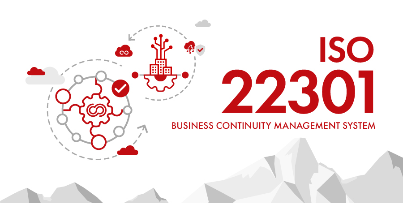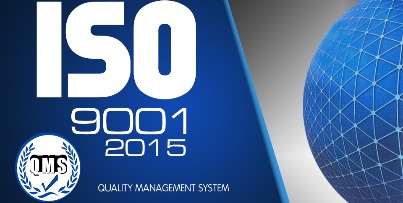
How ISO Certification helpful for Manufacturing Industries?
ISO Certification is the finest alternative for all industries to demonstrate to their customers or clients that they are producing world-class, effective, and efficient products and services. ISO Certification for the Manufacturing Industry is critical to any country's economic progress. Manufacturing industries are seen to be our ticket to a society free of poverty and unemployment. A country's manufacturing industry determine its residents' quality of life. The quality of manufactured goods, the well-being of the working class, citizens' environmental awareness, and the efficiency of processes all contribute to a government's recognition. As a result, the general public has high expectations for the quality, safety, and efficiency of their products or services. As a result, promoting the manufacturing industry to achieve internationally recognised ISO standards as a cost-effective and efficient management system aids these industries in meeting and exceeding public expectations. As a result, ISO certificates are extremely beneficial to industrial industries like steel, paper, rubber, cement, lime, plaster, tobacco, wood, and plastic.
How ISO Certification helpful for Manufacturing Industries?
Manufacturing industries are in desperate need of ISO certifications in order to become more efficient and effective management systems. ISO Certifications assist manufacturers in assessing and identifying all hazards associated with their products or services, as well as determining how to manage those risks. ISO certification aids in the implementation of high-quality production management systems. ISO standards are also a useful tool for ensuring collaboration and efficiency within a manufacturing network. As a result, ISO certificates are required in a wide range of industries, including steel, paper, rubber, cement, lime, plaster, tobacco, wood, and plastic.
Every level of their services demonstrates the critical necessity for ISO Certifications in the industrial business. In this context, the following points are highlighted:
- Having ISO certifications for the railway industry can help you gain international recognition by enhancing your global reputation.
- ISO Standards assist manufacturing companies in increasing their revenue and maximising earnings for the benefit of the company.
- ISO certifications can be applied to nearly any form of manufacturing unit, regardless of size, type, or process.
- ISO accreditation enhances your company's reputation by demonstrating your commitment to meeting internationally recognised quality standards.
Which standards or ISO certificates are required for the Manufacturing Industries?
The International Organization for Standardization (ISO) develops standards that aid in the implementation of systematised management systems for the delivery of quality assured products and services, as well as enabling compliance with the relevant standard.
ISO 9001, ISO 14001, ISO 45001, ISO 22301 and ISO 50001 are the most prevalent ISO standards for all types of Manufacturing Industries. However, ISO 22301 certification is the most significant and required ISO standard for the Manufacturing Industries.
Let's have a look at these ISO standards in more detail:
ISO 9001 Standard
ISO 9001 is a global standard that establishes a framework for establishing Quality Management Systems (QMS) in businesses. As a result, ISO 9001 assures that the quality of your products or services fulfils client expectations, which is extremely advantageous to the prosperity of your country.
ISO 14001 Standard
By providing the basis for the construction of Environmental Management Systems, the internationally renowned ISO 14001 standard assists you in enhancing your contact with the environment (EMS). It also aids you in resource management and waste reduction in order to make your activities more environmentally friendly.

ISO 45001 Standard
The global standard ISO 45001 provides a framework for building an occupational health and safety management system (OHSMS) in your company. This protects both your employees and your visitors from work-related injuries.

ISO 50001 Standard
The international standard for energy management systems, ISO 50001 Certification, is a requirement. This standard aids in the efficient administration of your energy resources, resulting in a lower carbon impact for your company. Because of its extensive use of energy resources, it is especially significant for manufacturing businesses.

ISO 22301 Standard
The automobile industry can benefit from ISO 27001 accreditation for Information Safety Management Systems (ISMS), which will demonstrate the company's competence to handle valuable data and information. This ISO certification for the automobile industry also aids in the prevention and management of cyber-attacks and data breaches.
Benefits of ISO certification for Manufacturing Industries Industry
ISO Certifications are valuable to practically every industry in the world of business. Manufacturing is thought to be the most powerful industry in global economic integration. The demand for quality and long-term manufacturing services or goods is steadily increasing. ISO Certifications aid in the development of a standardised management system for offering quality-based operations in your firm. ISO Certifications offer the greatest potential for supplying quality assured products or services for every manufacturing industry, including steel, paper, rubber, cement, lime, plaster tobacco, wood, plastic, and so on, allowing the company to generate significant profits.
The following are some of the advantages of ISO certification for industrial industries:
- ISO certifications are extremely beneficial to your company since they examine and identify all of the hazards associated with your processes and then determine how to prevent or minimise them.
- ISO certifications for manufacturing businesses will aid in the maintenance of environmental, health, and safety standards, as well as the reduction of workplace dangers and environmental concerns.
- ISO standards for the manufacturing sector aim to lay the groundwork for the successful and efficient delivery of products and services, with a focus on energy balance and cost control.
- ISO Certifications for manufacturing businesses prevent process reworks, resulting in cost savings in your industry.
ISO Certification process for Manufacturing Industries
- Application & contract
- Audit team Assignment
- Document view
- Certification Audit Independent review
- Notification of Certification
- Surveillance audit
- Re-Assessment
The certification process goes further. click here to view the next steps to ISO certification Process








